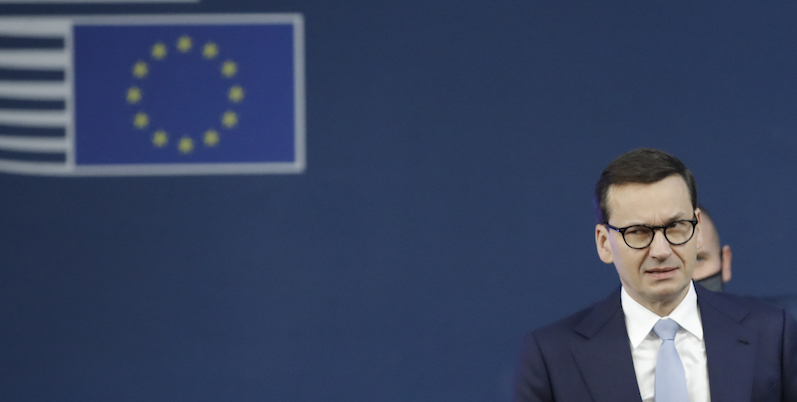The Court of Justice of the European Union, which is the main European court, has convicted Poland will pay the European Commission a daily fine of one million euros for not suspending, as requested by the court last July, the activities of the disciplinary division of the Polish Supreme Court. The Federation argues that this section is a body that limits the independence and impartiality of judges, and therefore does not guarantee Respect for the rule of law in Poland (The principle underlying modern constitutional democracies, which includes respect for laws by both citizens and those who govern them.)
The court’s decision states that “compliance with the interim measures ordered by the Court of the European Union on 14 July 2021 is necessary to avoid serious and irreparable harm to the European Union’s legal system and the values on which the Union was founded, in particular the rule of law.” The amount of the fine is very important, according to the standards of the Court of Justice, and the opposition to its payment is rather complicated: in order to avoid the accumulation of the fine, the simplest solution and so far taken by the states that have received similar rulings is this to adapt to the requests.
The far-reaching judicial clash between the European Union and Poland, which became a country with a semi-authoritarian leadership after the far-right Law and Justice party’s victory in the 2017 elections, has been going on for years and exacerbated in last July’s release of the Supreme Court’s disciplinary chamber.
This department was created by the Polish government in 2017 to investigate judicial errors of judges: it still has very broad powers and, among other things, has the right to bring criminal cases against judges. The Court of Justice of the European Union has assessed that it is an impartial body and threatens the independence of the country’s judicial system. Therefore it has issued temporary order (called a “temporary measure”) to prevent his activities, which was not respected.
The Polish Constitutional Court, Poland’s most important constitutional court that has been occupied by pro-government judges according to the opposition, has ruled that the court’s interim measures will not be compatible with Poland’s constitution. The decision was serious, because it did not recognize the authority of the Court of Justice which, according to European treaties, takes precedence over national courts, and to deny it would mean questioning one of the founding principles of the Union.
A month ago, the European Commission demanded sanctions against Poland, as the country ignored requests made by the court last July to suspend the judicial discipline system “immediately”. A few days ago, in the European Parliament, Polish Prime Minister Mateusz Morawiecki assumed that the disciplinary oath could be rescinded, but the announcement was not followed up. The court decided to pay the sum of 1 million euros per day, and wrote that the penalty could represent “encouragement” for the Polish government to carry out the indicated measures “as soon as possible”.
The clash between the EU and Poland is part of a broader dispute specifically over the rule of law and the union’s ability to interfere with Polish laws when fundamental rights are violated. An important phase of the conflict ended a few weeks ago when the Polish Constitutional Court – following a question posed by Polish Prime Minister Mateusz Morawiecki – established That any provision or regulatory law of the European Union must comply with Polish law, in order for it to be applied in Poland.
– Read also: The “rule of law” that is less and less in Poland
The problem of respect for the rule of law in Poland concerns not only the judicial system, which was in fact for years under the control of Law and Justice (which is the main European ally of the Italian Brothers party in Italy). In recent years, the government has also passed several laws against freedom of information, women’s rights, and the LGBT community.
– Read also: Why does the European Union not expel Hungary and Poland?

“Reader. Travel maven. Student. Passionate tv junkie. Internet ninja. Twitter advocate. Web nerd. Bacon buff.”



